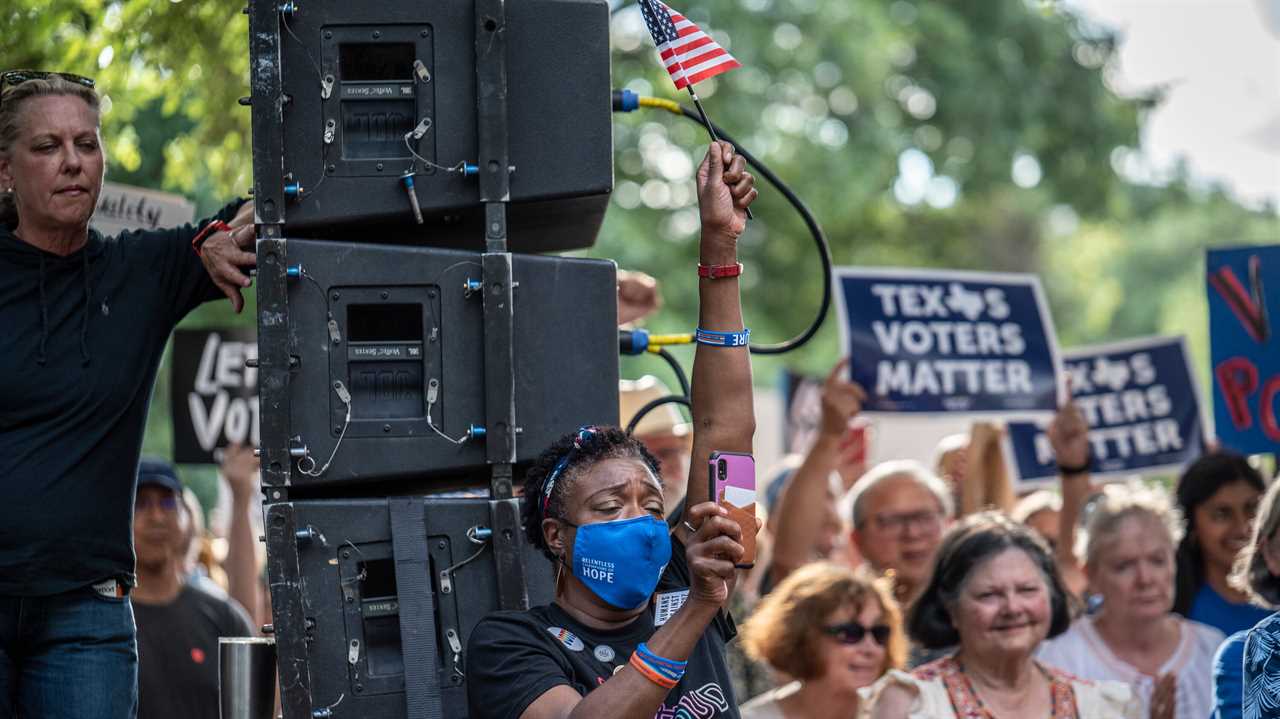
Priorities USA, one of the biggest Democratic super PACs, plans to announce on Tuesday that it will pump $20 million into voting rights initiatives ahead of the 2022 election cycle, aiming to combat Republican-led election laws with digital ads and organizing as well as in the courts.
The digital effort will include a series of extensive voter information campaigns, going beyond a more traditional approach that would consist solely of persuasion ads. The group’s overall goal is to help people navigate a new balloting landscape created by the many new restrictions passed by Republicans in at least 16 states. The campaigns will also provide voting tools like text message reminders to register to vote or request an absentee ballot.
“The purpose of this program is to really center the voters who we know are particularly targeted by the Republicans’ suppression efforts,” said Danielle Butterfield, the executive director of Priorities USA. “Those are voters of color, Black and Latino voters specifically, and we plan to center them both in our creative and our targeting to make sure that they are aware of how empowering voting is.”
The other significant investment will be on the legal front, where the group has served as one of the leading litigators in voting lawsuits across the country. Priorities USA joined lawsuits in 10 states during the 2020 election and its aftermath, squaring off against legal attempts by Donald J. Trump’s campaign to overturn the election results and pushing back on new voting laws. Though Priorities has not sued any state this year in response to new voting restrictions, group officials said that more legal efforts would be coming soon.
The initial $20 million investment from Priorities comes as Democrats across the country are struggling to fight back against the Republican push to restrict voting. Opposition from major corporations, faith groups, civil rights groups and celebrities has done little to stymie new voting laws in key states like Georgia, Florida, Iowa and Arizona. Even a dramatic late-night walkout by Democrats in Texas, which effectively killed a Republican voting bill in the state, is likely to be only a temporary victory, with the governor pledging to enact new voting legislation through a special session of the Legislature.
The Supreme Court is also poised to deliver a ruling in the coming days on the Voting Rights Act, potentially further weakening its protections against voting restrictions. And Democrats in Washington appear to be on the brink of a defeat of their expansive federal voting bill, the For the People Act, with Republicans united in opposition and moderate Democrats unwilling to kill the filibuster to pass the legislation.
Of course, the new laws will continue to make it harder for some people to vote, and voter education and awareness efforts can go only so far. Priorities USA said it would continue to explore other avenues to help people vote.
“Most voting rights advocates and people that do this work would say that we don’t need to try to narrow it down to just one area of work,” said Aneesa S. McMillan, a deputy executive director at Priorities USA who oversees voting rights efforts. “We need to be thinking of a multipronged approach.”
Organizing campaigns are becoming an increasingly popular tool for Democrats to try to counteract new voting laws. This month, the Texas Democratic Party announced the largest voter registration push in its history, aiming to register two million new voters and investing about $14 million in the effort.
In addition to informing voters, an important component of the digital effort by Priorities USA will be fighting voting disinformation.






